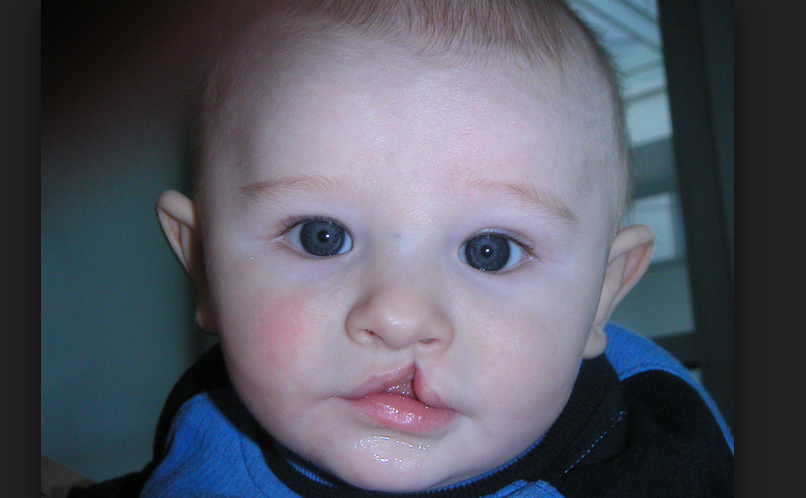In Joanna Jepsen’s new book, A Lot Like Eve: Fashion, Faith and Fig-Leaves, she shares about her difficult childhood and why she’s against aborting babies with certain fetal abnormalities. Jepsen was born with a beak-like upper jaw, protruding teeth and a sloping lower jaw that disappeared into her neck; and in her teens she wasn’t able to close her mouth for more than ten seconds.
In the memoire, Jepsen also shares about a phone call she received from a friend that stirred her toward campaigning against abortion in England. Her friend asked if she was born with a cleft lip because he’d just discovered that a 28-week-old unborn baby had been aborted for that exact reason. But Jepsen was not born with a cleft lip; rather, she was born with more severe facial abnormalities that required countless surgeries in her childhood.
Jepsen (below) was shocked by her friend’s news and said, “I knew I couldn’t let the matter rest. After all, I was in a unique position. Had I been born later, to a different family, that baby aborted at 28 weeks could well have been me.” Additionally, Jepsen mentioned she was fearful that more pregnant women would have abortions if they found out their child had other fetal abnormalities like Down syndrome. Jepsen’s brother, Alastair, was born with the condition.
She continued, “I can’t pretend that my childhood wasn’t tough. Boys jeered at me, people sent me poison-pen letters and I was called everything from Goofy to ‘can-opener’ and ‘chipmunk’.
Yet at 19, when my bones were deemed to have stopped growing, a surgeon began the surgical reconstruction of my face — and it was so successful that many people I’d known for years no longer recognised me. The same could be done for anyone born with a cleft lip and palate. The operations I’d had were identical to those performed on young adults with this condition. Could society really be condoning the abortions of these babies? Was it saying it was better for people like me not to exist than to risk the cruelty and ignorance of others?”
Click here to sign up for daily pro-life news alerts from LifeNews.com
In 1991, an amendment was added to the Abortion Act that made it legal to have an abortion at any time in a pregnancy, as long as there was substantial risk that the child would be ‘seriously handicapped’ by physical or mental abnormalities. Jepsen commented on this and said, “…Babies with a cleft palate and lip wouldn’t be ‘seriously’ handicapped. They might have to wait, as I had, for a series of operations. But then they’d almost certainly be fine. It seemed incredible that no one had foreseen where the 1991 amendment would lead. But actually, they had: two lawyers had warned MPs that conditions like cleft palate and club foot might well be given as grounds for termination.”
In the early 2000’s, Jepsen decided to initiate a legal investigation into the 28-week abortion because she believed it was an unlawful killing. Unfortunately, however, a judicial review concluded that the doctors carrying out the abortion had “acted in good faith”, and would not face prosecution. Moreover, they decided that since there is no legal definition of “seriously handicapped,” abortion in these situations should be left to the discretion of medical doctors.
Here’s more on what Jepsen discovered about fetal abnormalities and abortion in the United Kingdom:
One couple told me they’d been offered an abortion because their baby had missing fingers. Another man said his mother had been offered an abortion because he’d been diagnosed with a club foot.
A friend arranged for me to meet a cleft palate surgeon, who talked sadly about the mothers who came to him for a second opinion. In each case, they’d been urged to consider terminating their babies. They’d been warned by their previous doctors that their children would be disfigured. They’d even been given measurements of how far away you could stand from such a child and detect their deformity.
These doctors could only paint a picture of an unborn baby’s future in clinical terms. They couldn’t talk about love, courage, achievement and all the layers of meaning in its life.
I thought of my brother. Alastair had passed several NVQs in Hotel and Catering and now had a good job at Dundry Nurseries, the UK’s number one videotape recycler. Was abortion really the best answer society could come up with for people like Alastair and me?









